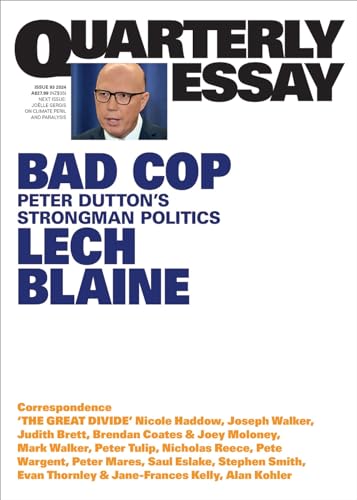Percival Everett, James (Pan Macmillan Australia 2024)
Before the meeting: Mark Twain’s Adventures of Huckleberry Finn is one of those books that, even if you haven’t actually read it, you probably feel as if you have. Though it’s set in the south of the USA during the time of slavery, it was published in 1884, two decades after slavery was abolished. It’s an adventure story. A prefatory note warns the reader not to look for a motive, a moral or a plot. But the warning is obviously ironic. Huck, a white boy, teams up with Jim, a man escaping from slavery, on a raft trip down the Mississippi and, though the book is much praised for other elements such as its portrayal of the great Mississippi River and its breakthrough use of US vernacular English, it’s Huck’s moral growth, his coming to recognise Jim’s humanness and the evils of slavery that account for the book’s status as a Great American Novel.
But …
As African-American voices – voices of people whose lives are still deeply affected by the legacy of slavery – have made themselves heard, the book has met with controversy. I first met the negative case in Julius Lester’s Falling Pieces of the Broken Sky, in which one essay begins, ‘I am grateful that among the indignities inflicted on me in childhood I escaped Adventures of Huckleberry Finn.’ Inspired by Lisa Hill in the comments section on my post about that book (yes, there are places where it’s safe to read the comments!), I searched for the article to refresh my memory and found a version at this link. Lester is scathing, describing the book’s world as the ‘all-too-familiar one of white fantasy in which blacks have all the humanity of Cabbage Patch dolls’. There’s a lot more if you’re interested.
Percival Everett’s James tackles Huck Finn in a different way, less scathing but even more radical in its project of restoring humanity to the character Jim. It’s a novel in its own right, which I imagine you could read without reference to Twain’s. But you’d miss a lot of the pleasure and insight it has to offer.
James tells the story from Jim’s point of view, including a number of episodes where Jim and Huck are separated. It keeps much of the adventure and the humour of the original, but it opens out to the visceral horrors of slavery. In particular Twain’s final section in which Huck and Tom Sawyer hatch a plot to free Jim is replaced by darker, and also more joyful and just as improbable actions in which Jim takes things into his own hands.
But just as important as the changes in the story are the changes in tone. Beginning with the book’s title, dignity is restored to Jim. He is still called by the diminutive in most of the narrative, but we know that’s not all of him. In a key device, whenever enslaved characters talk to each other out of earshot of whites, they speak a form of standard English, returning to ‘slave talk’ – Sho nuff, Massah, etc – if they think they’ll be overheard. It’s not realistic: there’s no way enslaved people in the American South in the mid 19th century spoke standard 21st century English, but it’s an inspired bit of comedy that works to undo the othering of the enslaved.
As it happens, page 77* is a nice example of how James writes back to Huckleberry Finn.
In Mark Twain’s narrative, Huck and Jim have been separated by a near disaster. When Huck regains the relative safety of the raft he finds Jim in an exhausted sleep, and decides to play a trick on him. He tells Jim nothing untoward has happened, that it has all been a dream. Jim believes him, and sets about interpreting the dream – only to have Huck point to some damage on the raft that proves the incident really happened. Huck, who is the narrator, asks teasingly what these things stand for:
He looked at me steady without ever smiling, and says:
‘What do dey stan’ for? I’se gwyne to tell you. When I got all wore out wid work, en wid de callin’ for you, en went to sleep, my heart wuz mos’ broke bekase you wuz los’, en I didn’ k’yer no’ mo’ what become er me en de raf’. En when I wake up en fine you back agin, all safe en soun’, de tears come, en I could a got down on my knees en kiss yo’ foot, I’s so thankful. En all you wuz thinkin’ ’bout wuz how you could make a fool uv ole Jim wid a lie. Dat truck dah is trash; en trash is what people is dat puts dirt on de head er dey fren’s en makes ’em ashamed.’
Then he got up slow and walked to the wigwam, and went in there without saying anything but that. But that was enough. It made me feel so mean I could almost kissed his foot to get him to take it back.
It was fifteen minutes before I could work myself up to go and humble myself to a nigger; but I done it, and I warn’t ever sorry for it afterwards, neither.
It’s a milestone in Huck’s journey to realising that Jim is fully human, and is often quoted as one of the most moving passages in the book.
Here’s the equivalent in James, beginning with Jim playing along with Huck’s childish trick:
‘Lawdy, Lawd, Lawd,’ I said. ‘Sho was a scary dream.’
Huck started laughing. He pointed at me and laughed harder.
‘You mean you was pullin’ on my leg?’ I said. He was enjoying himself and that was all right with me. It always made life easier when white folks could laugh at a poor slave now and again.
‘I had you goin’,’ Huck said.
I acted like he’d hurt my feelings. White people love feeling guilty.
‘I’m sorry, Jim. I just thought it was funny,’ he said.
‘Yeah, it be funny, Huck, sho nuff funny.’ I pushed out my lower lip a bit, an expression I displayed only for white people.
‘I din’t mean to hurt you none.’
It could have been my turn to experience a bit of guilt, having toyed with the boy’s feelings, and he being too young to actually understand the problem with his behaviour, but I chose not to. When you are a slave, you claim choice where you can.
So much is happening here. Jim is no longer a gullible fool. He’s an adult, adept at playing the role assigned to him by slavery while holding firm to his own reality. Huck’s great moral turning point is just another example of the psychology of members of the oppressor group who want to see themselves as virtuous: ‘White people love feeling guilty.’ But as an adult he is acutely aware that Huck is a child. When he chooses not to ‘experience a bit of guilt’ he’s departing from his usual protective attitude. Despite what he says, he clearly does feel guilty – and needs to justify his behaviour. Like a true adult, though, he doesn’t argue that he was just giving as good as he’d got, tit for tat, ‘He started it’. He acknowledges that he was acting within their other opprsssor–oppressed relationship. ‘When you are a slave, you claim choice where you can.’ It’s a complex moment, that foreshadows the way we come to see Jim and Huck not so much as slave and slaver as adult and child.
Jim, soon to call himself James, gets to dispense some rough justice in the course of the book, but his relationship with Huck develops in benign and interesting ways, with a twist that is signalled early, guessable, and very satisfying.
After the meeting: We had a fabulous meal, over which discussion ranged from the recent State of Origin match to the question of whether as a man of a certain age one should step off the footpath when an oncoming group of young people acts as if you’re invisible.
I was probably the most familiar with Huckleberry Finn, and no one else was all that interested in the relationship between the two books. My impression is that reading with that relationship in mind meant that I enjoyed it more – I didn’t just forgive what others saw as the faults of the book but saw them as features. For example, a number of chaps commented that there was a series of incidents and events rather than a character-driven plot. That’s definitely an issue for James as a stand-alone novel, but I just accepted it as integral to the basic project of writing back to Huck Finn. Similarly, the number of coincidences that allow Jim and Huck to get back together after their separations is irksome, or possibly laughable, unless you take them in your stride as echoing nineteenth century conventions. Most interestingly, the ‘twist’ (sorry, I won’t be spoileristically specific) feels implausible. Sure, but it’s profoundly satisfying as a symbolic statement.
But it wasn’t a disagreement. We reminded each other of ‘good bits’: the time Jim spends with a minstrel group, as a Black man pretending to be a white man pretending to be a Black man; a horrific scene when a man who is being savagely flogged mouths the word ‘Run!’ to someone he sees to be at risk Mostly, we enjoyed the book as a good yarn – down the river then a u-turn back up, as someone said.
I wrote this blog post on the unceded land of the Gadigal and Wangal clans of the Eora Nation, not far from where what we now call the Cooks River has been cared for by Elders for millennia. As I finished it, the shortest day of the year was nearly here, and the ground was sodden from abundant rain.
* My blogging practice is to focus arbitrarily on the page of a book that coincides with my age, currently 77.





